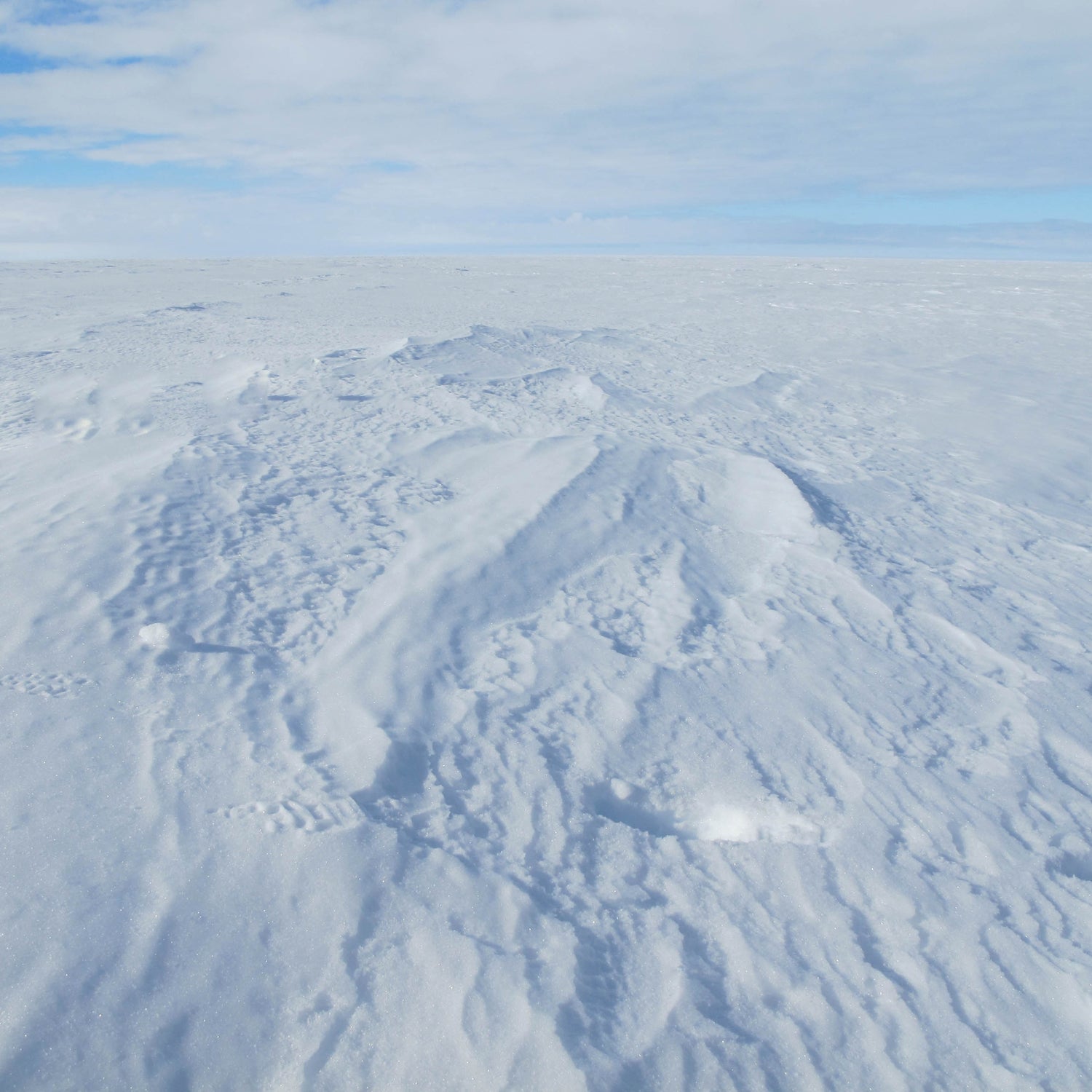Every morning at 5:30 a pocket-size alarm clock rings next to Borge Ousland's stocking-capped head. In what must be the most difficult of his daily rituals, Ousland, a 32-year-old Norwegian who is trying to become the first person to cross Antarctica alone and unaided, fumbles his way out of a toasty sleeping bag and onto a mile-thick ice cap. He stops to fill his gullet with 3,000 calories' worth of steaming, lard-spiked oatmeal and then slides a Jimi Hendrix cassette into his Walkman, clips into a harness not unlike those worn by sled dogs, and shuffles his skis forward, pulling a 375-pound sledge.
If all goes well, this routine, which Ousland began last November 8 on Berkner Island, south of Punta Arenas, Chile, will render him sometime this month on the far side of the continent, due south of New Zealand, at the U.S. research base at McMurdo Station. Dodging crevasses and beating back minus-30-degree temperatures, Ousland will pass directly over the South Pole. But the 1,700-mile walk won't guarantee him a spot in the record books. As Ousland is all too aware, somewhere in the foggy distance another adventurer, 46-year-old Roger Mear of Great Britain, is also slogging across the ice, having set out on a similar course at nearly the same time. And while both men claim the timing was purely coincidentalÔÇöOusland says he learned of Mear's expedition when he booked his flight on the only airline that serves Antarctica–they are now going head-to-head in what's being called one of the greatest expeditionary duels of all time, on par with the fabled Norway-versus-Britain polar feuds of the early part of the century. Only this time, millions of armchair adventurers in their home countries are following the explorers' tracks in newspapers, on television, and over the Internet, thanks to portable transmitters that beam their coordinates back to civilization via satellite. As the Associated Press stated succinctly last November, “A race is on.”
Mear and Ousland, who are acquaintances in the relatively small circle of polar expeditioners, have shied away from using the word “race,” in part, they say, because of the haunting precedent set in 1911 by another Norwegian-British duo, Roald Amundsen and Robert Falcon Scott. Although Amundsen and Scott didn't know each other personally, jingoistic fury in both nations raised the stakes. Hoping to lull Scott into believing that he could take his time in getting to Antarctica, Amundsen went so far as to announce that he was planning an expedition to the North Pole. At the last minute, however, the Norwegian sent his rival this terse message: “Am going south. AMUNDSEN.” He then boarded a ship and headed for Antarctica.
Should both men complete one of the finest, purest, and most difficult overland expeditions ever attempted and then hop aboard the same Russian icebreaker home, as is currently planned, will it really matter who arrived at McMurdo first?
In the end Scott and his team reached the PoleÔÇöfour weeks after AmundsenÔÇöbut on the return trip things took a nightmarish turn. Traveling on foot, the team met up with horrendous weather, eventually succumbing to exhaustion and starvation just 11 miles from a food cache. The Norwegians, using dogsleds, made it off Antarctica alive, but only because their plan involved slaughtering and eating their dogs along the way. Such a grisly outcome isn't very likely this time. If either adventurer were to fall into a crevasse or run out of food, a rescue plane could arrive in less than 12 hours.
So who has the best shot this time around? Mear started with a five-day jump on Ousland, but he became bogged down in a whiteout and had to halt for a few days. At press time his lead had all but disappeared. Otherwise, things seem pretty even. Both men are pulling approximately the same weight, and each is making use of a high-tech parachute sail, which in stiff winds will drag the men like water-skiers behind a motorboat.
Certainly both men have good pedigrees. Mear, along with two teammates, made a ski trek to the South Pole in 1986. He's also a first-rate alpinist, having put up ascents of 26,660-foot Nanga Parbat and 26,749-foot Cho Oyu in the Himalayas. In 1994 Ousland, a former commercial diver, became the first person to make an unsupported solo trek to the North Pole, skiing the 609 miles from Siberia in 52 days.
In temperament, however, the two explorers couldn't be more different. Ousland is a methodical, pragmatic sort, going so far as to gulp a daily glass of pure olive oil. For inspiration, he's carrying a collection of essays by Norwegian explorer Fridtjof Nansen–loose-leaf, to save weight. “As he reads through the book,” says his press agent, “the read pages can be used in the toilet.”
Mear, conversely, is a romantic prone to mystical melancholy. In his own account of the 1986 trek to the South Pole, he says one of his teammates found him “arrogant, unbearably moody, rude, ill-mannered, selfish, inconsiderate, and totally unsympathetic.” Not surprisingly, Homer's Odyssey and a collection of poems by Tennyson are in his sledge.
Of course, no matter which mental bent wins out, the long-standing Norwegian-British rivalry will undoubtedly live on. Should both men complete one of the finest, purest, and most difficult overland expeditions ever attempted and then hop aboard the same Russian icebreaker home, as is currently planned, will it really matter who arrived at McMurdo first? Perhaps not, though despite their declared mutual respect and forceful protests to the notion of a race, it's clear that neither wants to finish second. As Ousland's press agent recently said, sounding like a trash-talking NBA point guard with a Scandinavian lilt, “If Ousland succeeds, the British press will be saying once again, 'Why do you always beat us?'”


